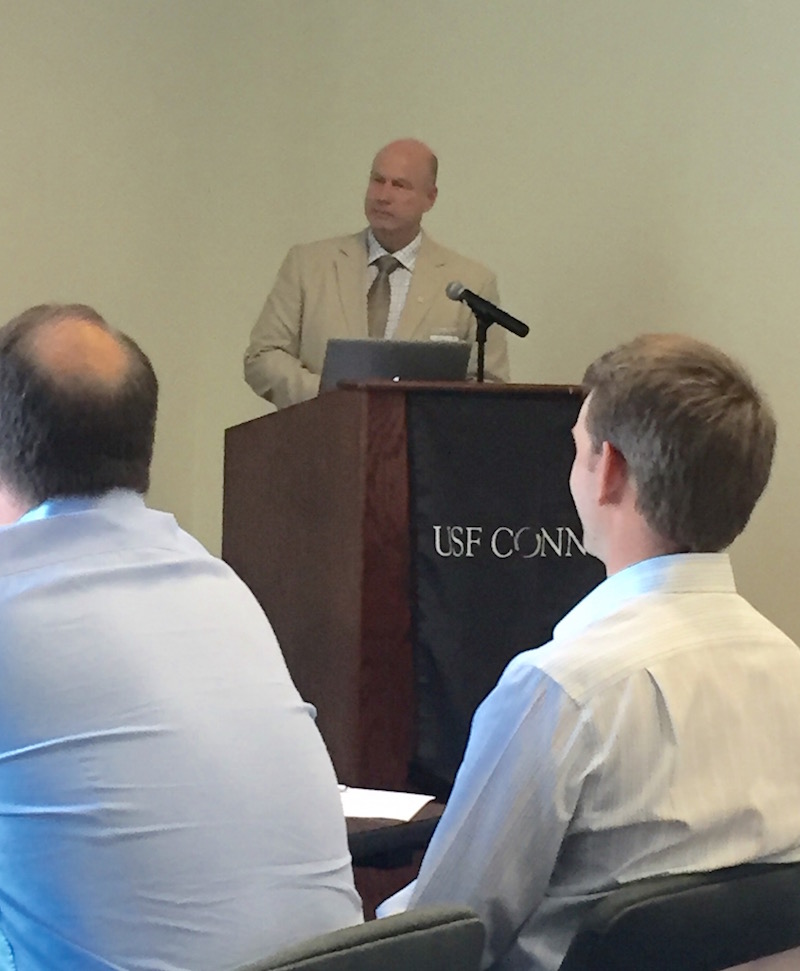 On July 27th, Abacode hosted a Cybersecurity Executive Workshop for the business community to address the growth of cyber-attacks in the business community. Special guest speakers from the FBI and the US Military’s Joint Cyber Center discussed the facts and repercussions on cybercrime from their perspectives.
On July 27th, Abacode hosted a Cybersecurity Executive Workshop for the business community to address the growth of cyber-attacks in the business community. Special guest speakers from the FBI and the US Military’s Joint Cyber Center discussed the facts and repercussions on cybercrime from their perspectives.
United States Army Colonel Keithon Corpening, Chief at USCENTCOM Joint Cyberspace Center, highlighted threats to military operations and discussed non classified programs that the US Military has in place to protect themselves from such threats. To date, the largest breach of federal security targeted the US Office of Personal Management (OPM) in which over 18 million personal records were stolen. The attack occurred undetected for months and was only discovered during the investigation of a completely separate issue. The US Military now considers the internet as a battleground just as much as land, air, and sea.
Cybercrime is typically conducted by dedicated groups such as Hacktivists, like Anonymous, or state adversaries from countries like Russia, China, North Korea, or Iran. The US Military diligently fights to defend themselves from evolving and persistent cyber-attacks. Supply chains and wireless access points are common areas under attack. Insider threats and vulnerabilities introduced from removable media such as USBs or phones require constant vigilance.
Another guest speaker at Abacode’s workshop was Special Agent Lawrence Wolfenden of the Federal Bureau of Investigation. Lawrence’s responsibilities with the FBI’s Cyber Squad are to reinforce counter terrorism and counter intelligence, as well as combat cybercrime. He works to protect the intellectual property of businesses who are victims of cybercrime. On average, businesses are exposed to over 16,000 cyber threats every single year.
The FBI responds to attacks and threats that have created significant losses. Even with FBI intervention, the damage incurred by businesses is often irreversible. Compaines must have policies and procedures in place prior to a cyberattack becoming a full breach. SA Wolfenden advised business owners to be proactive and monitor for cyber threats. He also recommended that companies have an incident response plan in the event of a breach. For a company with a database containing personal information of 50,000 customers, liability in the event of a hack could cost upwards of $10 million.
Abacode’s Cybersecurity Director, Jeremy Rasmussen, closed out the workshop by sharing cybersecurity basics and tips for businesses to protect their data. He also discussed several forms of cybercrime. Phishing is a method of attack that mimics legitimate sources of communication. For example, an attacker will pose online as a financial institution and solicit a user to click a specific link, then login in using their confidential username and password.
Another common threat is Malware, which allows hackers to remotely control a computer network, copy data, and record keystrokes. Firewalls and antivirus programs may be helpful but often not sufficient to protect against seasoned hackers.
Jeremy wrapped up the meeting with trivia questions and urged visitors to seek information on cybersecurity in order to protect their data.
For more information about Abacode, the cybersecurity experts, visit their website or
follow them on Twitter!






